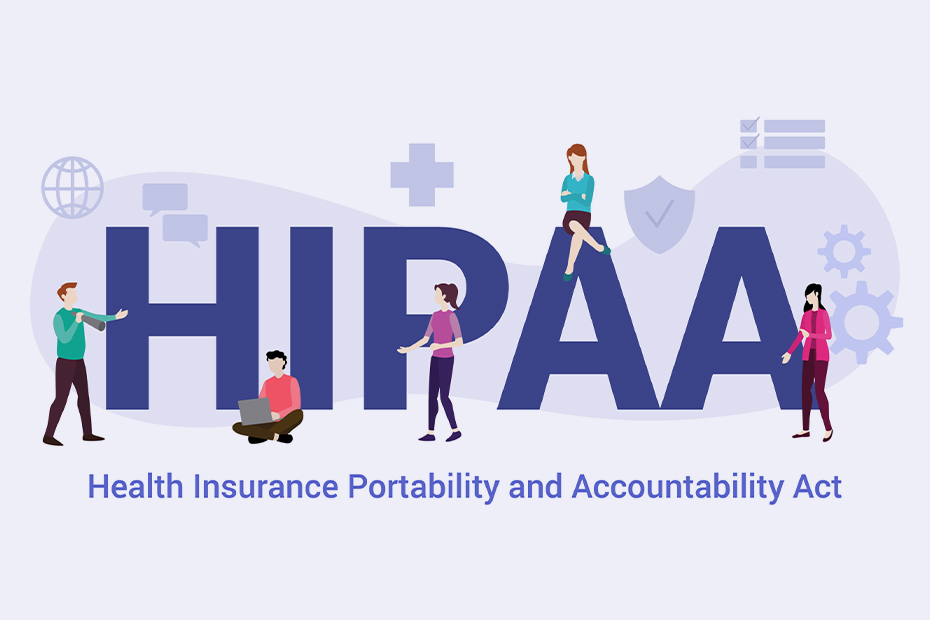Sensitive patient data must be protected in accordance with the Health Insurance Portability and Accountability Act (HIPAA) and the HIPAA Privacy Rule. They achieve this by developing guidelines for the secure transmission, privacy, and protection of patient medical information by those working in the healthcare industry.
Examples and Definitions of the HIPAA Law and Privacy Rule
The HIPAA Law and Privacy Rule established national standards for protecting the privacy of medical information. The confidentiality of the patient was to be protected. While maintaining your right to privacy, it permits the sharing of data that is necessary for medical treatment. For instance, even though you can sign a document authorizing the release of specific medical information to other organizations, your information cannot be disclosed to third parties without your express written consent. The majority of healthcare providers and insurers must follow the HIPAA law's privacy requirements. This covers safeguarding all personally identifiable health information (PHI) and data related to specific individuals. Other laws in addition to HIPAA exist to safeguard patient privacy and health records. HIPAA is the industry norm because it is federal law. Each state's standards may supplement it.The HIPAA Law and Privacy Rule in Action
Your private health information has been protected since 1996 by the HIPAA Privacy and Security Rules. The original compact has undergone numerous changes as technology has advanced and information has become more widely available. These rules have all been implemented to protect your personal information's privacy. The HIPAA law aims to make things simple because so much information is shared between doctors, health insurers, and other parties involved in the healthcare industry. The healthcare system is streamlined, and secure data is guaranteed. Additionally, the law aims to decrease healthcare fraud and enhance data systems. Some healthcare organizations have taken action to protect data. For instance, they might employ key card systems to regulate access to offices housing medical records. Additionally, they might only allow employees access to the minimal amount of health information required to complete a task. Additionally, many insurers and medical groups use specialized services to protect online transactions. Here is a case where the HIPAA law was put into practice: A privacy form, or HIPAA notice, is typically requested of patients when they visit the doctor. The notice specifies that consent from the patient is required before sharing their health information. This holds true even if the doctor is conversing with a spouse or other immediate family member. There are some exceptions to the HIPAA privacy laws. Your doctor or insurer may occasionally deviate from the guidelines. For instance, if a patient cannot make their own decisions or if there is a grave risk to their health or safety, this might be the case. It should be noted that de-identified health data cannot be linked to a specific individual. All identifying characteristics have been removed. This information, therefore, poses no risk. De-identified health information is not subject to any HIPAA restrictions.HIPAA Privacy Rule Types
There are four guidelines that healthcare providers must adhere to under the HIPAA law:- Protects the type of data that is communicated under the HIPAA Privacy Rule
- The HIPAA Security Rule safeguards database security.
- HIPAA Enforcement Rule: Describes hearings and penalties and how to enforce the rule.
- Health care providers are required to notify people when there has been a breach of protected health information, in accordance with the HIPAA Breach Notification Rule.
What Are the HIPAA Law's Privacy Requirements?
Your protected health information, or "PHI," which includes any data that might be transmitted or kept and contains personally identifying health information, is protected by HIPAA. Information about a patient's personally identifiable health can be used to identify them. For illustration, it might refer to specifics like a person's name, address, date of birth, or Social Security number. Any information about the patient's physical or mental health, medical care is given, or financial information is also included. The HIPAA Privacy Rule shields these details. It should be noted that small, self-administered health organizations may not be required to follow HIPAA regulations if they provide your health insurance. To find out if they'll cooperate, check with them. If not, find out what steps they are taking independently to protect your privacy.Who Is Affected by the HIPAA Law and Privacy Rules?
Standards must be followed by health plans, healthcare clearinghouses, healthcare providers who transmit health information, and other healthcare entities. However, some businesses are exempt from these regulations. Here are a few instances:- Companies that offer genetic testing directly to consumers
- Mobile applications for fitness and health
- practitioners of complementary medicine
- government organizations, like child protective services
- authorities in the law
- the life insurance industry
- Schools
- Your company
Main Points
- The HIPAA Privacy Rule establishes requirements for protecting patient data in the healthcare sector.
- The majority of providers who use, store, maintain, or transmit patient health care data must adhere to HIPAA regulations.
- Individually identifiable health information (IIHI) and protected health information (PHI) are examples of protected data types that cannot be disclosed without your consent.
- There are a few situations where certain healthcare organizations are exempt from HIPAA regulations.


